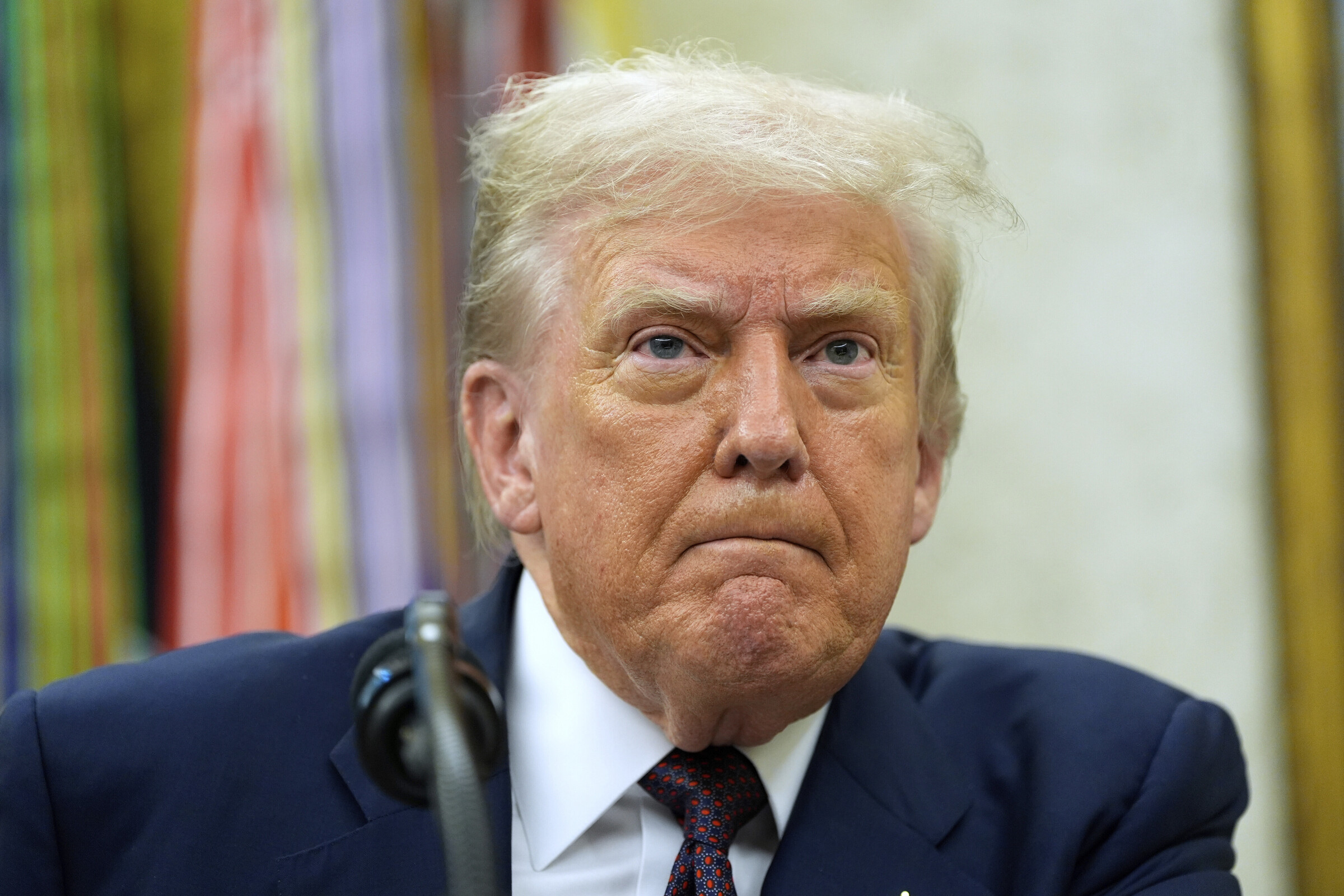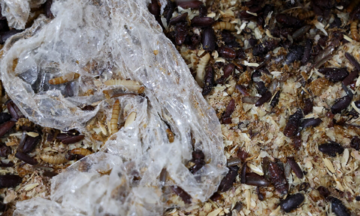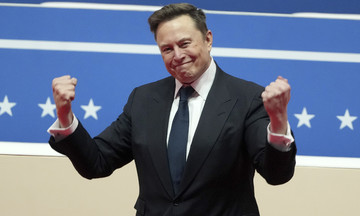President Donald Trump has frequently touted the revenue generated by the tariffs he imposed on imports. "Trillions of dollars are pouring into our country. Without tariffs, we would be a very poor country, taken advantage of by every other country in the world, friend and foe alike," he declared on 3/9.
However, two courts have now ruled that many of his tariff decisions were unlawful. In May, the Court of International Trade in New York ruled that the president had exceeded his authority in imposing these tariffs.
Last week, the Federal Circuit Court of Appeals in Washington largely upheld the ruling, deeming many of Trump's import taxes illegal. However, it allowed the tariffs to remain in place until 14/10 to give the administration a chance to appeal to the Supreme Court.
 |
President Donald Trump at the White House on 6/8. Photo: *AP* |
If the Supreme Court sides with the appeals court, the federal government could be required to refund a significant portion of the tariffs collected from companies importing goods into the US. The question then becomes: who is eligible for these refunds, and what is the process?
Experts say American consumers, who ultimately bear the brunt of higher prices due to tariffs, are unlikely to see any direct benefit. Instead, refunds would likely go to the businesses that directly paid the tariffs.
Trade lawyer Luis Arandia at Barnes & Thornburg explained that importers, as the entities filling out customs declarations, are legally responsible for paying duties and fees. "They would be the only ones with legal standing to reclaim the money," he said.
However, even for businesses, the process won't be simple. When the Court of International Trade ruled in May that Trump's use of the International Emergency Economic Powers Act (IEEPA) to impose tariffs was unlawful, trade lawyer Thomas Beline at Cassidy Levy Kent received a flurry of calls from clients asking when they could expect their refunds.
His succinct response: "Don't hold your breath." He advised clients to proactively file administrative protests with US Customs and Border Protection for the tariffs they had paid. This essentially prevents the tariffs from being fully settled, making the eventual refund process easier.
As the case heads to the Supreme Court, Ted Murphy, co-leader of the international trade group at law firm Sidley Austin, posed the question, "What do you have to do to get your refund?" He believes it's unlikely the government will automatically issue refunds. Instead, businesses will probably have to submit refund requests to Customs and Border Protection.
"The most likely scenario is that the government will ask the court to approve an administrative refund process, where importers have to actively request refunds," he explained. Clinton Yu, an expert at Barnes & Thornburg, advised importers to "organize their documentation thoroughly if they want to ensure they receive a refund."
Another possibility is that businesses may have to sue to get their money back. "The government could also argue that the court's ruling only applies to the named plaintiffs, thus requiring other importers to file their own lawsuits," Murphy added.
As of 24/8, US businesses have paid over $210 billion in tariffs levied under the president's IEEPA orders. Treasury Secretary Scott Bessent estimates that over $500 billion could be collected this year. Arandia believes that refunding hundreds of billions of dollars to thousands of businesses would be "the largest administrative undertaking in US government history."
Other complications abound. Murphy noted that it's unclear whether the government would have to pay interest on wrongly collected tariffs. The Trump administration could also resist refunds. The president has stated his unwillingness to return the money, even posting on social media in August that doing so would cause the US to "crash like 1929, The Great Depression!"
Refunds would also reverse the revenue stream the president has relied on to offset the costs of the "Great Beautiful Act" he signed on 4/7. Trump has warned this could "totally destroy the USA."
Brent Skorup, a legal expert at the Cato Institute, predicts that if the administration loses the case, the president's team will immediately cite reasons why issuing refunds to everyone is impossible. "There will be a lot of litigation about the nature and scope of these refunds. I anticipate the administration putting up all sorts of roadblocks," he said. The Treasury Department declined to comment on how it would handle an adverse ruling from the Supreme Court.
Phien An (*AP, CNN*)












